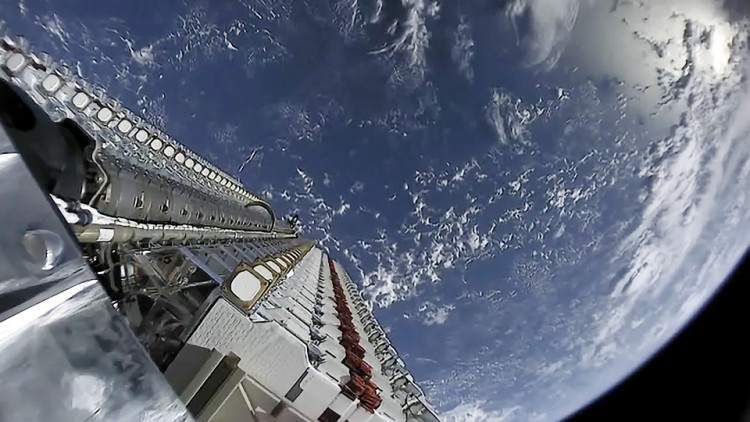In response to China's protest that its space station was forced to take evasive action in order to avoid colliding with satellites launched by Elon Musk's Starlink program, Chinese residents took to social media on Monday to express their opposition to the billionaire Tesla founder's space aspirations.
According to Beijing, the country's space station had two "near misses" with satellites from the Starlink. China's concerns about the United Nations space agency have not been independently verified.
China says it activated preemptive "collision avoidance control" on the China Space Station for safety concerns, according to a document published on the website of the United Nations Office for Outer Space Affairs.
Between May 16 and June 24, Starlink plummeted from an orbital altitude of approximately 555 kilometers to 382 kilometers in the first incident.
According to a UNOOSA document, the dip in altitude created a "collision hazard" on July 1 between Starlink and the Tiangong space station.
The second incident on October 20 necessitated the execution of an "evasive maneuver" by the Chinese space station in order to avoid hitting Starlink.
Both incidents drew online criticism in China, where several social media users referred to Musk's satellites as "space junk."
Starlink has been seen approximately 900 million times on Weibo. One Weibo user questioned whether Space X's satellites were military hardware, while another claimed Musk is a new "weapon" manufactured by the US government.
Additionally, China's state-owned Global Times quoted an analyst as claiming that SpaceX may be testing "China's capabilities and response awareness in space."
A request for comment from SpaceX did not receive a response immediately.
Musk is well-known in China, despite the fact that his electric carmaker Tesla is under increasing regulatory scrutiny, particularly after a consumer climbed atop a Tesla vehicle during a car show in Shanghai in April to protest bad customer service.
Scientists have expressed alarm about the risks of space collisions and have urged the world's governments to exchange information on the estimated 30,000 satellites and other space junk orbiting the Earth.
Approximately 1,900 satellites have been launched as part of the Starlink network, with hundreds more scheduled to blast off soon.
NASA hastily postponed a spacewalk from the International Space Station (ISS) last month because of concerns about space debris.
With the launch of Tianhe, the largest of the space station's three modules, China began construction in April.
The station is expected to be completed by the end of next year after four manned voyages have been made.





